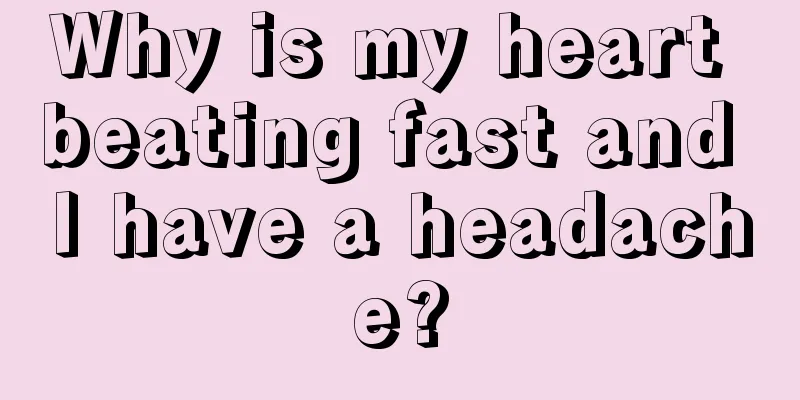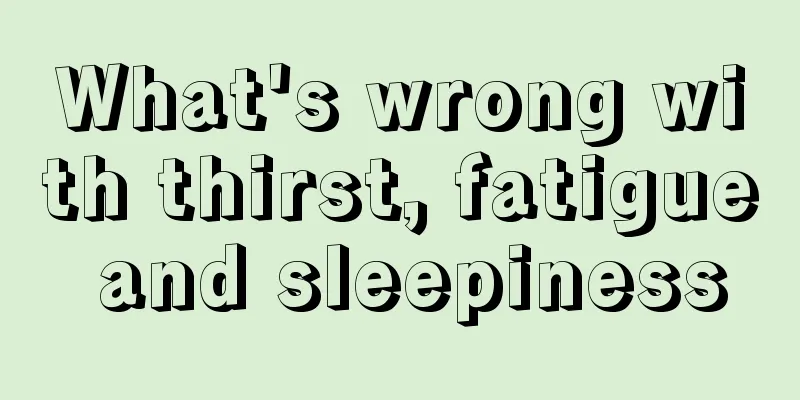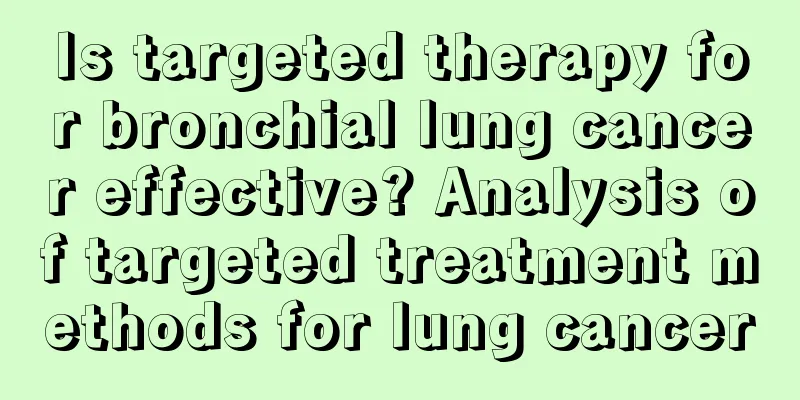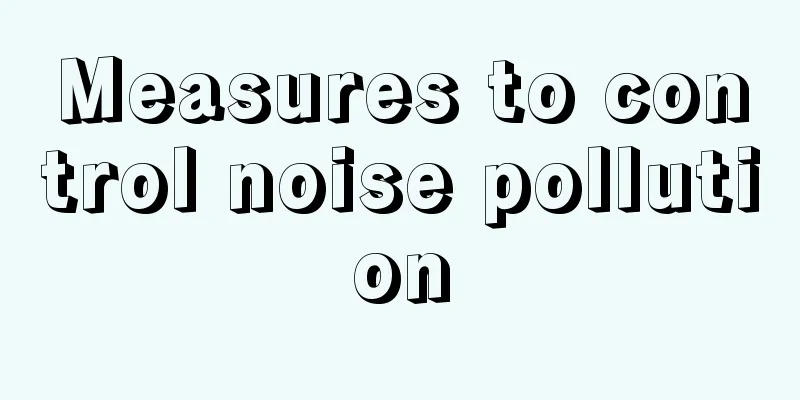Why is my heart beating fast and I have a headache?

|
Fast heartbeat and headache are two symptoms that are relatively common in life. They can occur alone or at the same time. If similar symptoms occur frequently, we should pay attention to it. The key is to find out the cause. Only in this way can we treat it accordingly. We should first have a full understanding of the possible causes and make judgments based on our own situation. So, what causes a fast heartbeat and a headache? Let’s take a look below. 1. Causes of headache 1. Cervicogenic headache Cervicogenic headache is the most common organic headache in clinical practice. It is often accompanied by difficulty and limitation in cervical spine movement, neck pain or tenderness near the cervical spine. Patients with longer duration of headache often have tenderness in the painful area of the head. When the headache occurs, there are often symptoms of eye discomfort. 2. Headache caused by cerebrovascular factors This type of headache is generally more severe and obvious, and is mainly related to the following three situations: 1. Hypertension: Painful, dull, tense head, aggravated by shaking head or exerting force, accompanied by dizziness, sometimes followed by cerebrovascular accident 2. Transient cerebral ischemia: This is especially likely to occur in patients with posterior cerebral artery ischemia; 3. Stenosis and blockage of the carotid artery, posterior cerebral artery, basilar artery, vertebral artery, etc.: This is likely to occur when there is insufficient blood supply or ischemia. 3. Headaches caused by tension, mood swings, anxiety, insomnia, etc. The symptoms are often a feeling of heaviness and tightness in the head, which may be accompanied by dizziness and fatigue. It may also be spasmodic pain, referred pain or distending pain, which can last for several hours and make the patient restless. The symptoms can be relieved by resting, applying heat or massaging the head. 4. Migraine Characterized by recurring unilateral or bilateral headaches. About 60% of patients have a family history, there are more female adult patients than male adult patients, and the number of onset varies. Generally, the pain is concentrated on one side and is pulsating. 5. Headache caused by cold and fever It occurs at the beginning of a cold, with a low fever or no fever, but a noticeable headache, accompanied by muscle aches and joint pains all over the body, or accompanied by nasal congestion, sore throat, runny nose, sneezing, etc. 2. Causes of rapid heartbeat 1. Stress and anxiety. These psychological factors cause the release of adrenaline and cortisol hormones, increasing heart rate and blood pressure. If you can calm down, the tachycardia will disappear on its own. You can try relaxation, deep breathing, yoga, and tai chi. 2. Stimulating drinks. Stimulant substances such as caffeine, alcohol and nicotine can increase blood pressure and speed up heart rate. Cardiologists at the Mayo Clinic in the United States recommend that adults consume no more than 400 mg of caffeine per day, roughly equivalent to four cups of coffee. 3. Dehydration. When you are dehydrated, your effective blood volume decreases, causing your blood pressure to drop, which in turn forces your heart to work harder and beat faster. After sweating a lot, you should drink water or drinks containing electrolytes in time to replenish lost body fluids and minerals. 4. Lack of sleep. Lack of sleep can also increase the secretion of the hormone cortisol, which can lead to an increase in heart rate and blood pressure. The National Sleep Foundation recommends that adults get 7 to 9 hours of quality sleep every night. 5. Pain. A study published in the Mayo Clinic Journal showed that the stress response caused by acute pain can cause increased blood pressure, accelerated heart rate, pupil dilation and increased cortisol levels in the blood, and the heartbeat will return to normal after treatment. 6. Pregnancy. A pregnant woman's heart is under increased stress. Research results from Duke University Medical Center in the United States show that by the end of pregnancy, the uterus receives one-fifth of the mother's blood supply, which increases the amount of blood pumped by the heart by 30% to 50%, causing the heart rate to increase. 7. Thyroid problems. The various hormones secreted by the thyroid gland regulate the functions of the major organs of the human body. When thyroid hormones are insufficient (hypothyroidism), the heart rate will decrease, while excess thyroid hormones (hyperthyroidism) will increase the heart rate. If you suspect that your accelerated heartbeat is caused by a thyroid problem, you should undergo a five-item thyroid function test. |
<<: What's wrong with headache, drowsiness and fatigue
>>: 10 tips to get pregnant quickly?
Recommend
Why do I sweat easily?
Under normal circumstances, everyone will sweat, ...
Which two places will show abnormalities in the early stage of gastric cancer
In the early stages of gastric cancer, two common...
Be alert to extrapulmonary symptoms of lung cancer
According to statistics, about half of lung cance...
Cough and runny nose after fever subsides
Fever is a very common phenomenon in daily life. ...
Will eating yam make you fart more?
Yam, also known as sweet potato, is one of the fa...
Introduction to three more effective treatments for gallbladder cancer
At present, there are three main effective treatm...
Is it okay to sleep with your head facing west and your feet facing east?
It is generally better to sleep with your head fa...
What are the examination methods for prostate cancer? Introduction to 3 examination methods for prostate cancer
The prostate is a very important organ for male f...
What antibiotics are used for pelvic inflammatory disease
Pelvic inflammatory disease is an inflammation of...
How to deal with a sprained leg caused by missing a step on stairs
Most houses nowadays have stairs. People have to ...
How to use makeup remover oil
Nowadays, more and more female friends wear makeu...
What causes breathing problems?
I believe that many people have never heard of re...
What should I do if I have mild carbon monoxide poisoning?
There are often safety hazards in life, but when ...
How much weight is normal during two months of pregnancy
Normal women will inevitably gain weight during p...
Tongue pain in life should alert you to the arrival of tongue cancer
Some people will feel inexplicable tongue pain, a...









